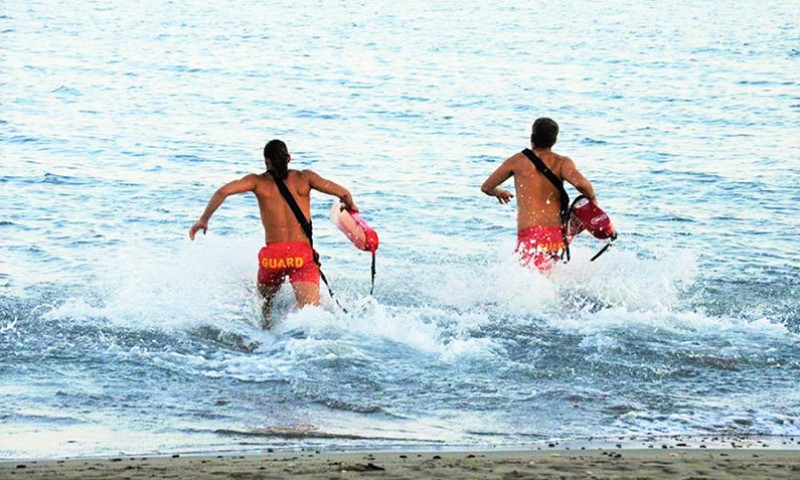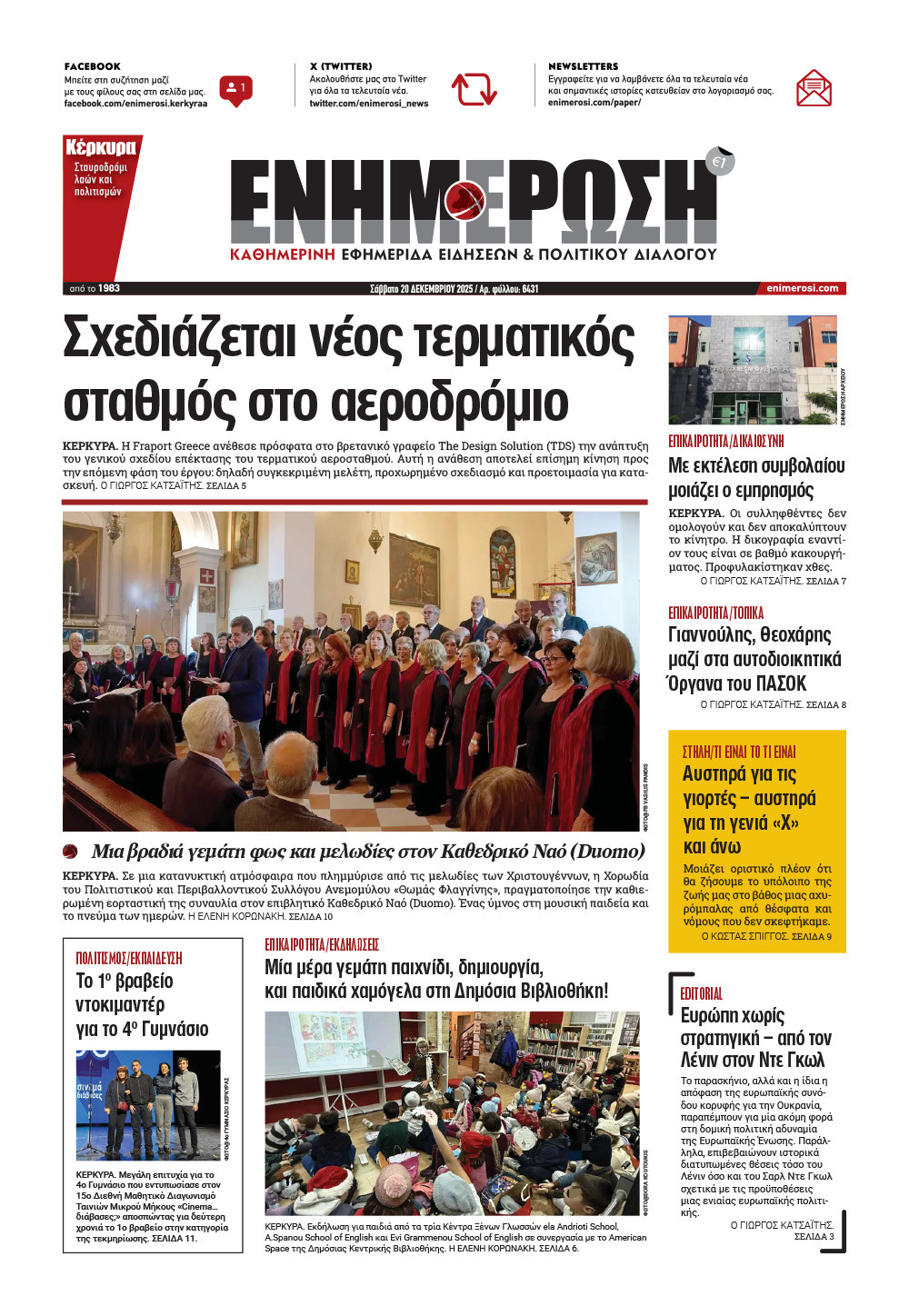Why there were no lifeguards in Central Corfu again this summer

lifeguards
25 Αυγούστου 2022
/ 19:50
CORFU. With procedures proceeding very slowly, tragedies occur that could have been avoided.
Even at the end of the summer the Central Corfu Municipality continues searching for lifeguards. But with procedures proceeding very slowly, the result is that human lives are lost at sea and tragedies occur that could have been avoided, while the tourist product is also affected.
Therefore, the citizens' negative reactions to these last-minute actions are understandable, as those responsible who are aware of the difficulties of bureaucracy could have foreseen them before summer arrived.
High cost
The mandatory recruitment of lifeguards had provoked reactions from the local government, due to the high cost it imposes on municipalities. In fact, this year the Central Union of Greek Municipalities (KEDE) requested a of 21-million funding from the Ministry of Interior.
Instead, the 115 coastal municipalities had to share €7 million. On 11 May, the Deputy Minister of Interior Stelios Petsas informed that the Central Corfu Municipality would be given €203,948, the North Corfu Municipality €128,798 and the South Corfu Municipality €114,838, noting that "any money that will not be used, will be given to cover other operational costs".
End of July
With the advertisement on 22 July, the Municipality started searching for lifeguards and speedboat operators for the much-frequented beaches - 35 positions in total.
Under the new law, Municipalities are required to hire the necessary number of lifeguards from June 1 to September 30, 10:00 to 18:00. For Municipalities that do not manage to recruit lifeguards in time, there will be stiff fines.
Seven beaches
The Municipality was searching for lifeguards for the following seven much-frequented beaches:
- Ipsos
- Barbati
- Dassia
- Ai Gordis
- Ag. Spyridon, Paleokastritsa
- Glyfada
- Kontoyialos
Three advertisements
Three candidates responded to the first advertisement, but they were rejected for not having the necessary documents. Two people expressed an interest in the second advertisement. Today, with the third attempt, it was announced that four applications had been accepted.
There was also a tender for the supply of lifesaving equipment announced. However, with this amount of money it is considered extremely difficult for a company to express interest.
No interest was shown
The Municipal Authority claims that the lack of expression of interest in the advertisements and the strict requirements of the new law are responsible for this situation.
"There was no interest shown to the advertisements, we made one more attempt and found four people. At the same time, the tender for the supply of equipment for these positions is ongoing. Of course, not all of the €250,000 provided for the 35 positions will be used," the Deputy Mayor for Finance Giorgos Pantelios told Enimerosi.
As to why the advertisement was delayed, he replied: "When we got the study from the Land Planning and Environment Department, we proceeded with the advertisement. Keep in mind that a study may take quite some time to be checked, if necessary," the Deputy Mayor clarified. "Despite the lack of interest, we continued our efforts. Saving even one life is important".
Strict specifications
The initial call for expression of interest on 24 June was just one for both the staff and the equipment with a budget of €750,000.
"No company expressed interest. We had to split the amount in two different calls - one for staff and one for equipment. This delayed the process because we had to revise the budget and retender," the Deputy Mayor for Planning Dimitris Katehis told Enimerosi.
The problem, according to the Deputy Mayor, is that there are not enough lifeguards with the qualifications required by the new law, i.e. approval of the Port Authority in addition to the university degree. According to him, it is difficult for someone from the rest of Greece to come to Corfu.
The same conditions do not apply to the staff hired by hotels, but this is up to the businesses to decide. "We, as a municipality, are obliged to provide lifeguards, whether the hotels have their own or not.
The same applies to equipment. The standards are such that it is very difficult to find it. We tried but we did not succeed. Many municipalities in the country have the same problem," said Mr. Katehis.
Therefore, the citizens' negative reactions to these last-minute actions are understandable, as those responsible who are aware of the difficulties of bureaucracy could have foreseen them before summer arrived.
High cost
The mandatory recruitment of lifeguards had provoked reactions from the local government, due to the high cost it imposes on municipalities. In fact, this year the Central Union of Greek Municipalities (KEDE) requested a of 21-million funding from the Ministry of Interior.
Instead, the 115 coastal municipalities had to share €7 million. On 11 May, the Deputy Minister of Interior Stelios Petsas informed that the Central Corfu Municipality would be given €203,948, the North Corfu Municipality €128,798 and the South Corfu Municipality €114,838, noting that "any money that will not be used, will be given to cover other operational costs".
End of July
With the advertisement on 22 July, the Municipality started searching for lifeguards and speedboat operators for the much-frequented beaches - 35 positions in total.
Under the new law, Municipalities are required to hire the necessary number of lifeguards from June 1 to September 30, 10:00 to 18:00. For Municipalities that do not manage to recruit lifeguards in time, there will be stiff fines.
Seven beaches
The Municipality was searching for lifeguards for the following seven much-frequented beaches:
- Ipsos
- Barbati
- Dassia
- Ai Gordis
- Ag. Spyridon, Paleokastritsa
- Glyfada
- Kontoyialos
Three advertisements
Three candidates responded to the first advertisement, but they were rejected for not having the necessary documents. Two people expressed an interest in the second advertisement. Today, with the third attempt, it was announced that four applications had been accepted.
There was also a tender for the supply of lifesaving equipment announced. However, with this amount of money it is considered extremely difficult for a company to express interest.
No interest was shown
The Municipal Authority claims that the lack of expression of interest in the advertisements and the strict requirements of the new law are responsible for this situation.
"There was no interest shown to the advertisements, we made one more attempt and found four people. At the same time, the tender for the supply of equipment for these positions is ongoing. Of course, not all of the €250,000 provided for the 35 positions will be used," the Deputy Mayor for Finance Giorgos Pantelios told Enimerosi.
As to why the advertisement was delayed, he replied: "When we got the study from the Land Planning and Environment Department, we proceeded with the advertisement. Keep in mind that a study may take quite some time to be checked, if necessary," the Deputy Mayor clarified. "Despite the lack of interest, we continued our efforts. Saving even one life is important".
Strict specifications
The initial call for expression of interest on 24 June was just one for both the staff and the equipment with a budget of €750,000.
"No company expressed interest. We had to split the amount in two different calls - one for staff and one for equipment. This delayed the process because we had to revise the budget and retender," the Deputy Mayor for Planning Dimitris Katehis told Enimerosi.
The problem, according to the Deputy Mayor, is that there are not enough lifeguards with the qualifications required by the new law, i.e. approval of the Port Authority in addition to the university degree. According to him, it is difficult for someone from the rest of Greece to come to Corfu.
The same conditions do not apply to the staff hired by hotels, but this is up to the businesses to decide. "We, as a municipality, are obliged to provide lifeguards, whether the hotels have their own or not.
The same applies to equipment. The standards are such that it is very difficult to find it. We tried but we did not succeed. Many municipalities in the country have the same problem," said Mr. Katehis.












